|
|
 |
• Содержание выпуска •
• Artificial Intelligence, Intelligence Systems, Neural Networks •
• Methods for Optimal Control and Control Theory •
• Software and Hardware for Distributed Systems and Supercomputers •
• Healthcare Information Systems •
Artificial Intelligence, Intelligence Systems, Neural Networks
Responsible for the Section: doctor of technical Sciences Vyacheslav Khachumov.,
candidate of technical Sciences Eugene Kurshev.
On the left: assigned number of the paper, submission date, the number
of A5 pages contained in the paper,
and the reference to the full-text PDF
/r1/pdf.jpg) . .
|
Article #
5_2019
29
p.
/r2/pdf.jpg) PDF
PDF |
submitted on 27th
Apr 2019 displayed on
website on 26th
Jule
2019 K. V. Pushkaryov
Global optimization via neural network approximation of inverse
coordinate mappings with evolutionary parameter control
A hybrid method of global optimization NNAICM-PSO is
presented. It uses neural network
approximation of inverse mappings of objective function
values to coordinates combined with particle swarm
optimization to find the global minimum of a
continuous objective function of multiple variables with
bound constraints. The objective function is viewed as a
black box. The method employs groups of
moving probe points attracted by goals like
in particle swarm optimization. One of the possible goals is
determined via mapping of decreased objective
function values to coordinates by modified Dual
Generalized Regression Neural Networks constructed from probe
points. The parameters of the search are
controlled by an evolutionary algorithm. The
algorithm forms a population of evolving rules each containing a
tuple of parameter values. There are two
measures of fitness: short-term (charm) and
long-term (merit). Charm is used to select rules for reproduction
and application. Merit determines survival of
an individual. This two-fold system preserves
potentially useful individuals from extinction due to short-term
situation changes. Test problems of 100
variables were solved. The results indicate that
evolutionary control is better than random variation of
parameters for NNAICMPSO. With some problems, when rule bases are
reused, error progressively decreases in
subsequent runs, which means that the method adapts to the
problem.
Key words: global optimization, heuristic methods,
evolutionary algorithms, neural networks,
parameter setting, parameter control, particle swarm optimization. |
|
article citation |
http://psta.psiras.ru/read/psta2019_2_3-31.pdf |
|
DOI |
https://doi.org/10.25209/2079-3316-2019-10-2-3-31 |
|
Article #
5_2019
33
p.
/r2/pdf.jpg) PDF
PDF |
submitted on 27th
Apr 2019 displayed on
website on 26th
Jule
2019 K. V. Pushkaryov
Global optimization via neural network approximation of inverse
coordinate mappings with evolutionary parameter control
A hybrid method of global optimization NNAICM-PSO is
presented. It uses neural network
approximation of inverse mappings of objective function
values to coordinates combined with particle swarm
optimization to find the global minimum of a
continuous objective function of multiple variables with
bound constraints. The objective function is viewed as a
black box. The method employs groups of
moving probe points attracted by goals like
in particle swarm optimization. One of the possible goals is
determined via mapping of decreased objective
function values to coordinates by modified Dual
Generalized Regression Neural Networks constructed from probe
points. The parameters of the search are
controlled by an evolutionary algorithm. The
algorithm forms a population of evolving rules each containing a
tuple of parameter values. There are two
measures of fitness: short-term (charm) and
long-term (merit). Charm is used to select rules for reproduction
and application. Merit determines survival of
an individual. This two-fold system preserves
potentially useful individuals from extinction due to short-term
situation changes. Test problems of 100
variables were solved. The results indicate that
evolutionary control is better than random variation of
parameters for NNAICMPSO. With some problems, when rule bases are
reused, error progressively decreases in
subsequent runs, which means that the method adapts to the
problem. (in Russian).
Key words: global optimization, heuristic methods,
evolutionary algorithms, neural networks,
parameter setting, parameter control, particle swarm optimization. |
|
article citation |
http://psta.psiras.ru/read/psta2019_2_33-65.pdf |
|
DOI |
https://doi.org/10.25209/2079-3316-2019-10-2-33-65 |
|
|
|
• Artificial Intelligence, Intelligence Systems, Neural Networks •
• Methods for Optimal Control and Control Theory •
• Software and Hardware for Distributed Systems and Supercomputers •
• Healthcare Information Systems •
|

